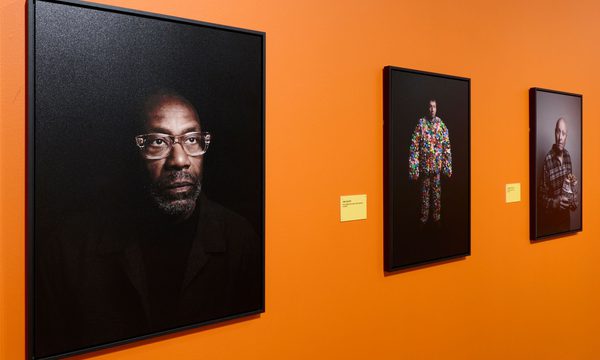Birmingham Museums’ natural science collection helps research to protect wildlife species under threat
Stories 1 Jul 2025News Story
The collection of ca 250,000 specimens is the largest resource of its type in the West Midlands.
Small samples from the bottom of the toes of taxidermied nightjars are helping scientists understand the genetic impact of declining nightjar populations.
A pangolin scale is being donated to a research project to help find new forensic solutions to protect this critically endangered animal from poaching.
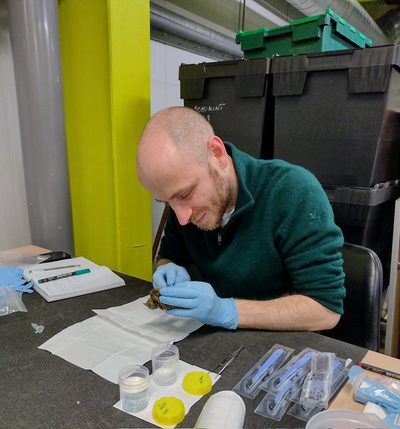
Birmingham Museums’ natural science collection is playing a vital role in supporting scientific research to help protect wildlife species under threat.
With around 250,000 specimens, the collection is the largest resource of its type in the West Midlands, covering modern biodiversity and the history of life and our planet.
The extensive bird collection is aiding conservationists tracking wild nightjar populations.
Like other long-distance migrants, nightjar populations have declined across the British Isles and Northwestern Europe over the past century, with loss of habitat for breeding believed to be the biggest issue.
The nightjar is listed as an Amber species in the UK Red List for Birds, meaning it is a species of conservation concern.
As part of a project to quantify the genetic impacts of this population decline by scientists at the University of York, a researcher visited the Museum Collection Centre in Birmingham to take samples from taxidermied nightjars by removing small pieces from the bottom of their toes.
These samples were used to sequence their genomes and compare this to the genomes of modern birds.
The findings, 'The Genomic Signature of Demographic Decline in a Long-Distance Migrant in a Range-Extreme Population' published in the journal Molecular Geology, depict a trajectory of declining genetic diversity, increasing inbreeding and genetic structure, potentially shared with other migratory species.
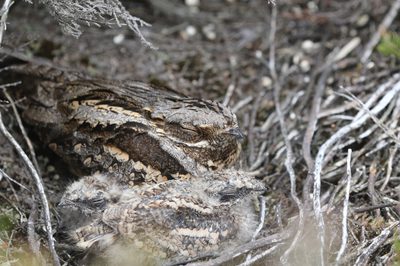
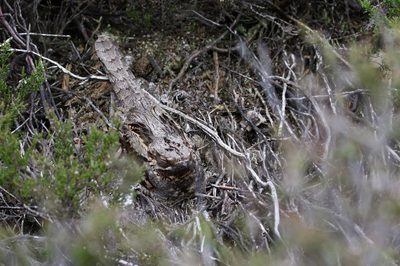
Meanwhile, Birmingham Museums’ collection of rare mammal specimens is contributing to research by the Scottish Universities Environmental Research Centre (SUERC) to find new forensic solutions to protect the pangolin, the world’s most trafficked mammal.
SUERC delivers international research, technology innovation and training across the isotope sciences, providing a focus for world-leading research that tackles strategic research questions in earth, environmental, heritage and biomedical sciences.
Pangolin scales and meat are extremely valuable in the illegal wildlife trade, being used in traditional medicine and luxury dining in some parts of the world. Poaching is a huge threat to these critically endangered animals’ survival, with recent data suggesting that one pangolin is taken from the wild every three minutes according to the Zoological Society of London (ZSL).
The project is seeking small samples of scale from all pangolin species held in UK museums for molecular analysis. This will be used to chart changes in pangolin population distribution and origin and develop mapping from which it will be possible to determine the location from where specific confiscated scales were poached - essential for tracing wildlife trafficking routes and protecting these critically endangered mammals.
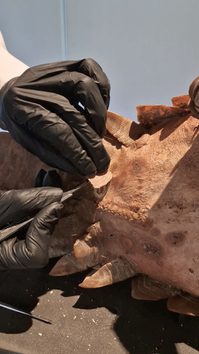
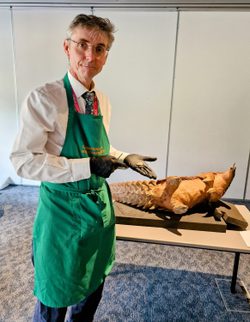
Lukas Large, curator of natural sciences at Birmingham Museums Trust, said:
“We are delighted to be able to support the work of researchers at University of York, SUERC and elsewhere.
“Museum natural science collections are invaluable resources for scientific research, providing historical data that allows researchers to understand past and present biodiversity, evolution and environmental changes.
“Our collections, consisting of specimens of plants, insects, birds, animals and geological samples, can serve as a baseline for comparison with modern observations,
“They act as time capsules, preserving information which can help scientists study the impacts of climate change and other environmental shifts, including the long term consequences of human activities.”

